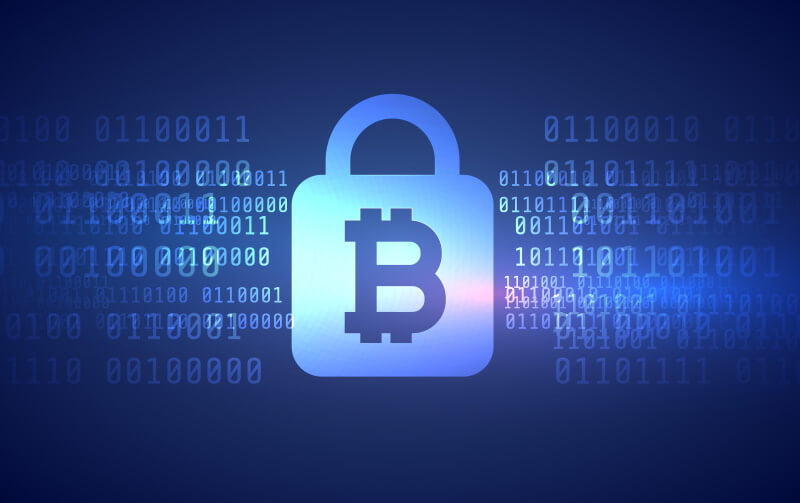In the present world where digital assets continue to play a vital role in the economy, it is essential to learn about digital asset custody. This might sound complicated at first but it is very important for people who manage or invest in digital assets. This blog post will provide insight into the importance, mechanism, advantages, and risks of digital asset custody.
Introduction
The evolution of cryptocurrencies, tokenized assets, and other digital assets has ushered in a new era in the world of finance. This evolution means that there is a great demand for the safe storing and managing of these assets. Digital asset custody is the process through which a third-party service provider, called digital asset custodian, is responsible for the safe storage of digital assets. This service is similar to traditional custody services in the financial industry that hold physical securities as well as other assets.
Key Takeaways
- Digital asset custody refers to the process of storing digital assets by third-party custodians.
- It is important in securing and protecting digital assets.
- Custody of digital assets is a fundamental concept for anyone operating in the digital asset space.
- On one hand, it provides increased security and compliance with the relevant regulations but, on the other hand, it brings regulatory risks and technological risks.
What is Digital Asset Custody?
Custody refers to the storing and safekeeping of digital assets such as cryptocurrencies, tokenized securities, and other forms of digital assets. A digital asset custodian can perform functions such as storage, security, transaction, and regulatory services. The primary focus is on preventing the loss of these assets through theft, fraud, or other means.
Custodians employ technologically-advanced security measures like multi-signature wallet, cold storage solutions, and encryption. These technologies aim to protect private keys or other personal information that provides access to digital assets.
Importance Of Digital Asset Custody
The significance of digital asset custody cannot be overstated. Here are several reasons why it is essential:
- Security: Hackers have a keen interest in digital assets. Effective custody solutions will also ensure that these assets are secured from cyber threats.
- Regulatory Compliance: The regulatory pressure on the digital asset market increases in line with the market expansion. Custodians are also important in facilitating compliance with regulatory requirements which is an important factor for institutional investors and financial entities.
- Trust and Confidence: Large traders and institutional investors are more likely to enter the digital asset market if they have confidence that their assets are securely stored. Custodians perform an important role in creating this trust.
- Operational Efficiency: Maintaining digital assets can be laborious and time-consuming. Custodians facilitate this process making it easier for investors to concentrate on their businesses.
How Digital Asset Custody Works
Digital asset custody operates through a combination of technological and procedural safeguards. Here’s a closer look at the mechanics:
- Wallet Management: Wallets are managed by custodians who hold digital assets on behalf of the users. They are hot (online) and cold (offline), and cold storage is recommended to increase security.
- Multi-Signature Solutions: These solutions require multiple private keys to authorize transactions which increase security.
- Encryption and Security Protocols: Encryption techniques and security protocols are also applied to protect private keys and other sensitive information.
- Regulatory and Compliance Services: Custodians also monitor all transactions and asset holdings to ensure that they adhere to the required regulations and standards and furnish the appropriate reporting and auditing documentation.
- Insurance: Some custodians also provide insurance against theft, fraud and other risks.
Benefits and Challenges Of Digital Asset Custody
Benefits
- Enhanced Security: Fiduciaries employ the latest security strategies to prevent hacking and loss of the digital information.
- Regulatory Assurance: Regulatory compliance watchdogs protect investors by offering support that guides them through a complicated regulatory process and mitigates legal risk.
- Risk Management: Brokers provide insurance coverage and operational backup services for the custodian to maintain risk management practices.
- Accessibility and Convenience: Custodians offer convenience and accessibility of the digital assets and enable efficient digital asset management for investors.
- Institutional Confidence: The services of reputable custodians help in building confidence among the institutional investors to increase their participation in the digital asset industry.
Challenges
- Regulatory Uncertainty: Custodians therefore must learn to play a role in a still evolving regulatory environment to remain in compliance.
- Technological Risks: A risk being overlooked in advanced security systems of digital asset custody is that of technology involving the strength of cybersecurity and system failures.
- Cost: Custody services of high quality often comes with high costs which might exclude smaller investors or institutions.
- Dependence on Third Parties: The use of custodians exposes a firm to the threat of third party. Investors need to be able to appropriately assess custodians of investments in order to determine whether they are worthy of trust or not as well as competent enough.
- Evolving Threat Landscape: This is why one cannot ignore the fact that cyber criminals are constantly developing new ways to attack their subjects using increasingly sophisticated technology. Custodians must remain on their toes with their security strategies since potential threats are constantly evolving.
Conclusion
Digital asset custody is of paramount importance within the digital financial market. While the popularity of digital assets continues to rise, the need for custodians to offer reliable, legally-strong, and convenient digital asset management services is also increasing. However, while the use of digital asset custodians presents various opportunities, it is also important to recognise their current limitations and potential threats. When investors understand the value and management of digital asset custody in digital asset trading, they can make more rational decisions and fully trust the digital asset world.
To conclude, digital asset custody is not just an insured warehouse – this must be the infrastructure of omnipresent digital assets. The relevance of digital asset custody becomes increasingly important for institutional investors, financial managers, and individual market participants who want to protect their assets from various threats in the digital space.

